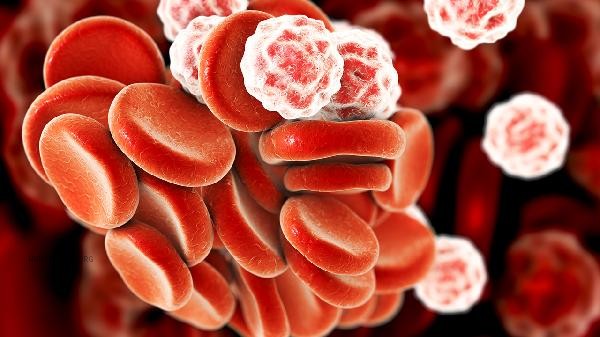Low normal values of white blood cells may be caused by viral infections, drug side effects, immune system diseases, abnormal bone marrow hematopoietic function, malnutrition, and other reasons. White blood cell reduction requires intervention based on specific causes. Mild reduction can be improved through dietary adjustments, while persistent low levels require medical examination for pathological factors.

1. Viral infection:
Influenza, rubella and other viral infections can temporarily inhibit bone marrow hematopoietic function, leading to a decrease in white blood cell count. This type of situation is usually accompanied by symptoms such as fever and fatigue, and the blood count can recover on its own 2-4 weeks after infection control. During this period, it is recommended to consume more high-quality protein and vitamin C, and avoid vigorous exercise.
2. Drug side effects:
Some antibiotics, anti thyroid drugs, and chemotherapy drugs may cause bone marrow suppression. Medications such as methimazole and cyclophosphamide can interfere with white blood cell production, and regular monitoring of blood routine is necessary during medication. If abnormal indicators are found, it is necessary to consult a doctor in a timely manner to adjust the medication plan.
3. Immune system diseases:

Autoimmune diseases such as systemic lupus erythematosus and rheumatoid arthritis may attack the hematopoietic system, manifested as sustained decrease in white blood cells. These patients often have typical symptoms such as joint pain and rash, and the primary disease needs to be controlled through immunosuppressants. 4. Bone marrow abnormalities: Diseases such as aplastic anemia and myelodysplastic syndrome directly affect hematopoietic function. In addition to leukopenia, patients often have concomitant hemoglobin and thrombocytopenia. Bone marrow biopsy can provide a clear diagnosis, and in severe cases, hematopoietic stem cell transplantation treatment is required. 5. Malnutrition: Long term lack of vitamin B12, folate, or insufficient protein intake can lead to a shortage of raw materials for white blood cell synthesis. Vegetarians and people with digestive and absorption disorders are prone to this condition, which can be gradually improved by supplementing with animal liver, dark green vegetables, and other foods.
A balanced diet should be maintained in daily life, with a focus on increasing the intake of high-quality protein such as lean meat, fish, eggs, and milk. Moderate consumption of fruits rich in vitamin C, such as kiwifruit and fresh dates, should also be considered. Avoid excessive dieting and selective eating. Long term vegetarians should pay attention to supplementing vitamin B12. Moderately engage in brisk walking, yoga, and exercise, avoiding exposure to radiation and chemical toxins. It is recommended to have a blood routine check every 3-6 months. If the white blood cell count continues to be below 3.0 × 10 ⁹/L or is accompanied by repeated infections, bleeding, and other symptoms, it is necessary to seek timely medical attention from a hematology department to complete a bone marrow examination.










Comments (0)
Leave a Comment
No comments yet
Be the first to share your thoughts!